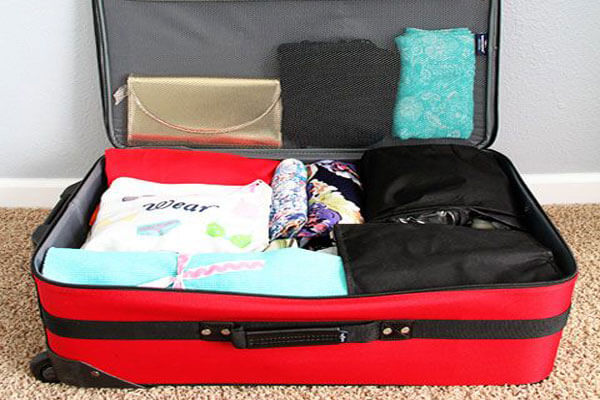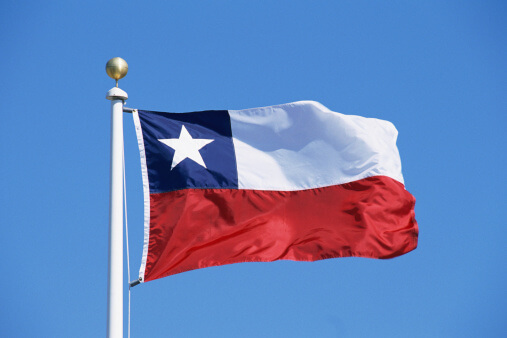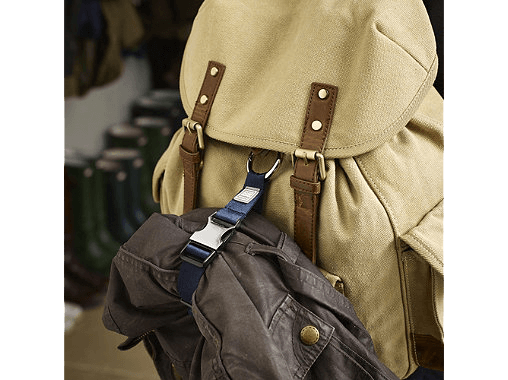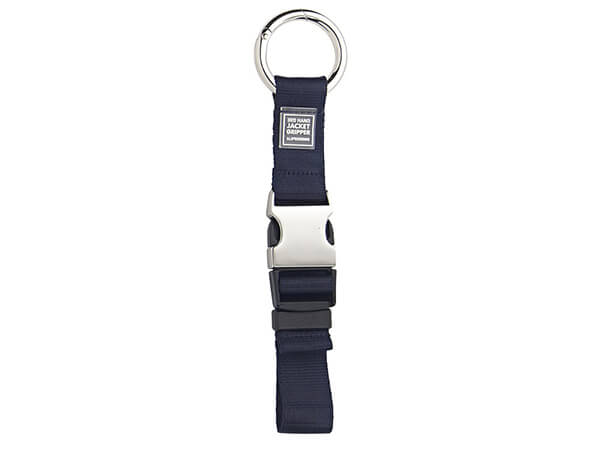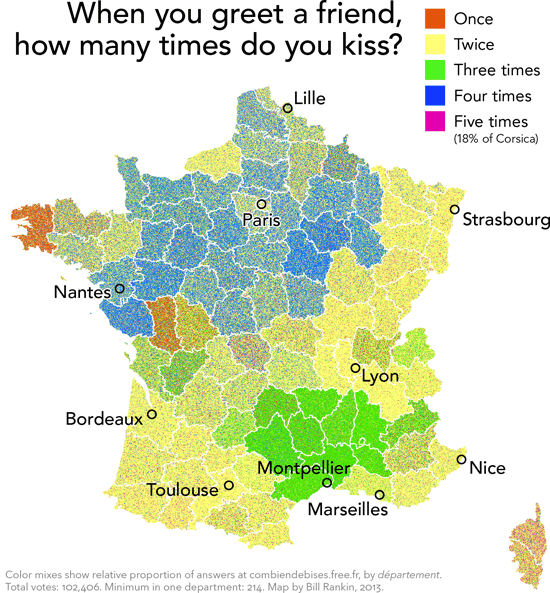Can’t take credit for these. Borrowed from Distractify. Personal thoughts* below for some.
1. Use a private or incognito window when booking flights and hotels online.
Travel sites often track your visits and will raise the price simply because you’ve visited before.
*Turns into a whole ethics argument, but according to the Wall Street Journal “Offering different prices to different people is legal, with a few exceptions for race-based discrimination and other sensitive situations. Several companies pointed out that their online price-tweaking simply mirrors the real world. Regular shops routinely adjust their prices to account for local demand, competition, store location and so on. Nobody is surprised if, say, a gallon of gas is cheaper at the same chain, one town over.”
2. Keep loose chargers and cables organized with a glasses case.
3. Use straws to carry travel-size amounts of skin care products.
*Good idea, but seems like a little too much work.
4. Put a dryer sheet at the bottom of a suitcase to keep your clothes smelling fresh.
*I do this every time. Highly recommend this.
5. Use a spring from an old pen to protect chargers from bending and breaking.
*I guess this is a good idea, but is it that much of a common problem?
6. Skip the long lines for airport bathrooms.
It may seem like common logic, but the first bathroom in the terminal is the most crowded one. Use the next one to skip the long waits and save precious time.
7. Use a binder clip to protect the head of shaving razors.
*Good idea. Save you from carrying the whole razor holder. Also, if you have an electric one, take the battery out to avoid security issues if it turns on by accident.
8. If you forget your wall plug, charge devices through the USB slot on a TV.
*Like!
9. Roll clothes, instead of folding, to save tons of baggage space.
*I’m undecided on this one. I feel like there are some more creative ways to pack. See here.
10. If you have clothes that need to be folded, use tissue paper to keep them from wrinkling.
*I’m undecided on this one too. How much of a difference can it make?
11. Use a pill container to keep jewelry organized and untangled.
12. Scan important documents before leaving for your trip.
*If you’re not doing this already, start!
13. Tuck your soap and wash cloth together with this easy-to-fold pouch.
14. A shower cap is an easy way to cover the bottoms of shoes.
*I still use a plastic bag as I find it keeps the smell contained as well.
15. Put smartphones in airplane mode to save battery and charge faster.
16. Keep your headphones from tangling by winding them around a binder clip.
17. Keep hair clips tidy with an empty Tic Tac container.
18. When packing, line collars with a belt to keep them crispy.
*A must for business travelers!
19. Sit in the seats near the wing of the plane for the least turbulence.
The seats along the wings of a plane usually have the least amount of bounce when flying because it has more structural support.
20. Keep your travel-size containers and refill them, instead of buying new each time.
21. To use Google Maps offline, type “OK Maps,” and the visible area will save for future access.
*This is very handy and should be part of your trip planning!
22. Instead of buying water at the airport, bring an empty bottle along and fill it up after passing security.
*Good way to save money for sure if you’re ok with tap water.
23. When reserving airline seats for 2 people, get the aisle and window.
If no one takes the middle seat you get a full row, and if someone does, just ask to switch so you can sit next to your travel partner.
24. Pack your suit coats inside out to keep them clean and avoid creasing.
*I find this works for all articles of clothing
25. Wait to buy airline tickets until 3 p.m. on Tuesdays.
Typically this is when the big Airlines reduce their fares in order to compete with the discount airlines like Southwest and JetBlue. If you’re looking to save some money, this is the time to buy.
26. To prevent messy spills in your luggage just unscrew the lids and place a simple patch of saran wrap on the top and screw them back on. This will prevent any liquids from ruining your trip.
27. Get the WiFi password for many establishments by checking the comments section of FourSquare.
*Sometime a simple good search will work as well.
28. Use your GPS when traveling abroad.
If you’re travelling abroad without an international plan, turn on airplane mode and turn off data to use the GPS without connecting to the internet. Simply load the Google map of the area before heading out the hotel, and you’ve got a fully functional map to navigate the area.
29. Get a free cell phone charger if you forgot yours at home.
Forget your charger? Often times hotel front desk’s will have a box full of chargers left by previous guests.
30. Skip the wait at the baggage claim.
Even if it’s not, marking your bag with a fragile label leads to gentler handling by airport staff. Also, they’re often loaded on the top of the other luggage meaning it’s one of the first to come out at the baggage claim.
*Can’t help by feel like this is like parking in a handicap spot when you’re not handicapped. Airlines are required to balance the weight of luggage to ensure a safe balance on the plane so I’m somewhat against this.
31. Get free WiFi at airports
When you’re at the airport, add “?.jpg” to the end of any URL to get around the ludicrously expensive WiFi. Alternatively, you can sit right outside an airport club lounge: Wi-Fi signals often glide through the walls.
32. For bonus points, travel with a power strip and be the airport hero.
33. On your last day in a foreign country, collect all your loose money and give it to the homeless.
*Big fan of this one!

